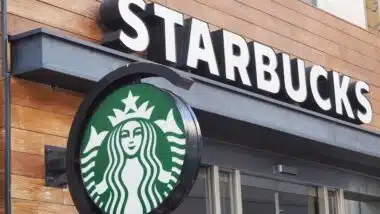 Keeping staff “on call” is a controversial form of scheduling, and involves staff being assigned shifts that can be canceled at the last minute without any pay.
Keeping staff “on call” is a controversial form of scheduling, and involves staff being assigned shifts that can be canceled at the last minute without any pay.
However, a Victoria’s Secret on-call lawsuit in California and an investigation in New York may be bring change to Victoria’s Secret and other companies that use the on-call or call-in scheduling system.
Employees of companies that use this system say they regularly found themselves working half the hours they were originally scheduled for, and therefore losing out on half the paycheck they expected.
Employees are expected to be available during the on-call work hours scheduled, but had no guarantee those hours would come through.
According to employees, this puts a great deal of stress on the worker.
One Bath & Body Works employee reports calling into her store several times on a day she was scheduled as on-call, being placed on hold, and worrying that if she was required to work that day, she would be late. The employee says that she had one hour to get to work during on-call days.
This on-call system of scheduling creates unpredictable hours, which make it next to impossible to hold another part-time job, and also causes income to fluctuate greatly.
In an attempt to minimize labor costs, companies use software to get a handle on staffing needs, and eliminate any unneeded staff on a given day. Keeping workers on-call without pay can save a company millions of dollars per year.
A Victoria’s Secret on-call lawsuit in California over the company’s labor policies includes its on-call scheduling. The Victoria’s Secret on-call lawsuit claims that those companies that require workers to take on-call shifts should pay those workers if their shifts are cancelled.
This proposed policy aligns with California’s state law that says a person who physically shows up to work but is sent home is required to be paid for the shift.
On-call shifts have been in use for a long time, and are generally associated with doctors, police officers, and other people who may be involved in emergency response. In these cases, being on call is considered necessary in order to properly deal with emergencies.
These workers are compensated for these shifts. The use of on-call shifts for retail employees is a relatively new approach, but has become extremely common.
California law requires employees to be paid if they “report for work” but are not allowed to work, and are subsequently sent home. The district judge on the Victoria’s Secret on-call lawsuit had a difficult time deciding whether “report for work” indicated physical presence only or included those who called in for on-call shifts as well.
The judge decided that “report for work” necessitates physical presence, and dismissed the claim. However, he later gave a chance to appeal the decision.
Victoria’s Secret and other companies argue that physically showing up constitutes work and should be compensated, while simply calling in is not work and should not be compensated.
The Victoria’s Secret on-call lawsuit could set influential precedents for other call-in shift lawsuits. For this retailer and others, the outcome could be costly.
Victoria’s Secret lawyers estimated that if the company was required by law to pay employees for two hours of work for cancelled on-call shifts, it would easily cost the company $25 million per year.
If you worked at Victoria’s Secret or other retailers in California and were subject to on-call scheduling, you may be able to file an on-call lawsuit.
Join a Free On-Call Shift Lawsuit Investigation
If you work or are scheduled for on-call shifts in retail or fast food in Oregon or California, you may qualify for this on-call worker class action lawsuit investigation.
This article is not legal advice. It is presented
for informational purposes only.
ATTORNEY ADVERTISING
Top Class Actions is a Proud Member of the American Bar Association
LEGAL INFORMATION IS NOT LEGAL ADVICE
Top Class Actions Legal Statement
©2008 – 2026 Top Class Actions® LLC
Various Trademarks held by their respective owners
This website is not intended for viewing or usage by European Union citizens.














